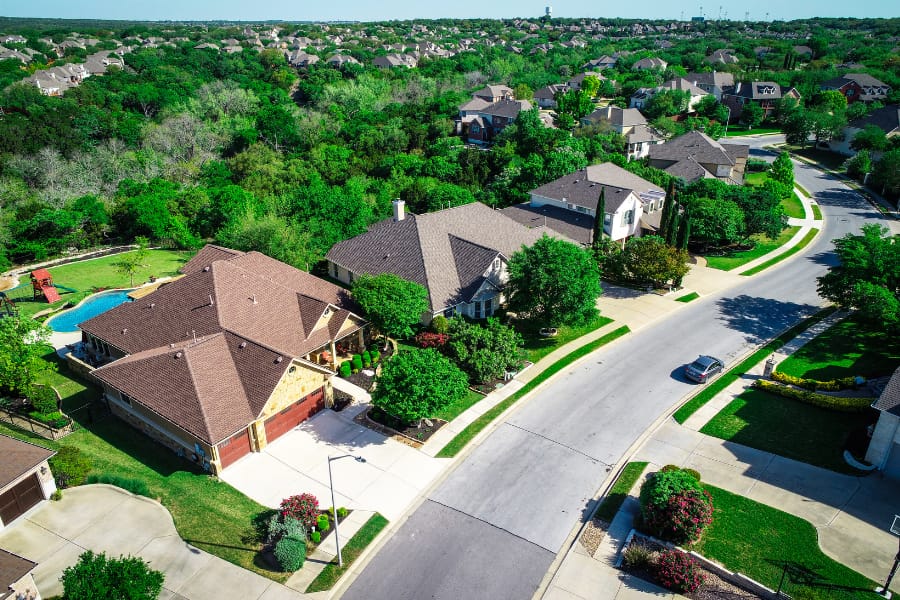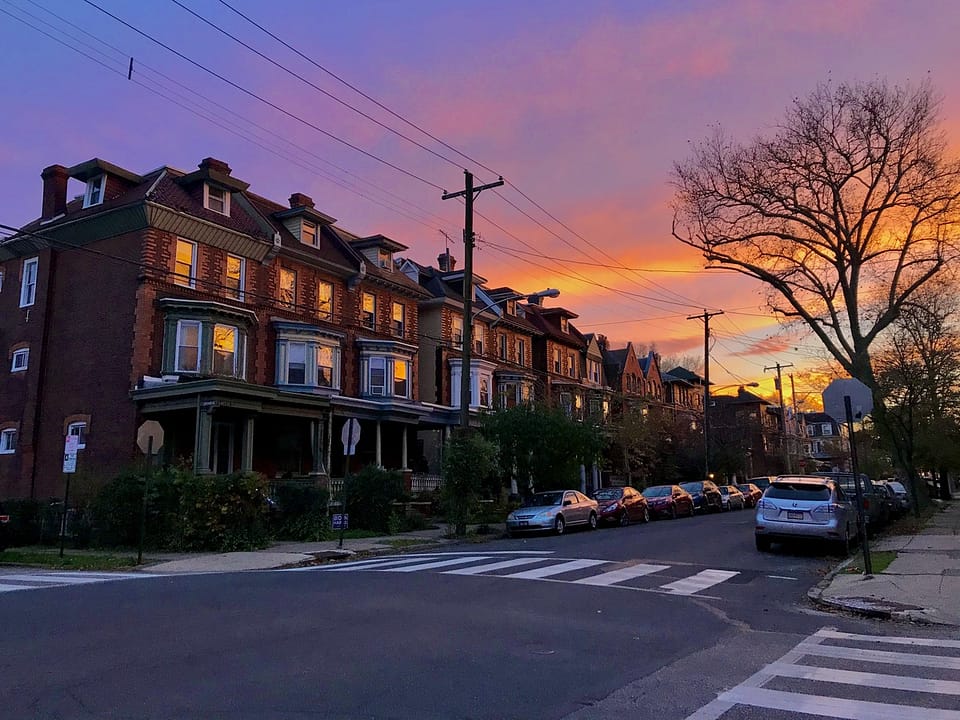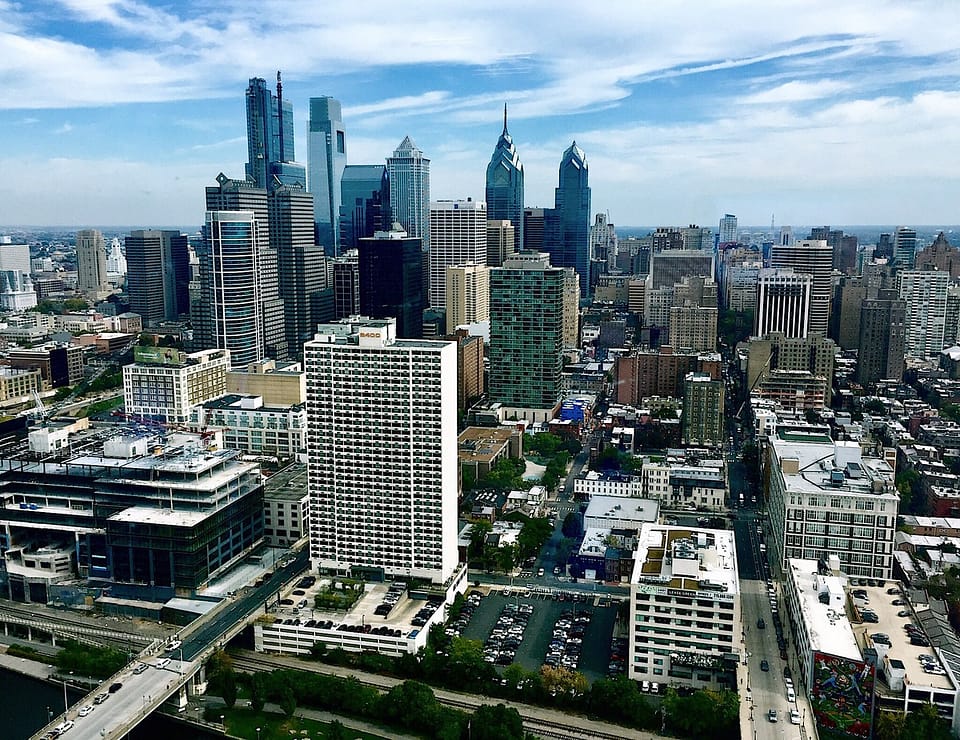What to Consider When Choosing a Neighborhood

Relocating is tough. I know, because I deal with this daily. As we buy homes for cash, we meet people preparing to move more frequently than you would think. And the most common factor that comes into play is “how do you choose a neighborhood?”
“When Candice and I began researching neighborhoods, safety, and a reliable school district were our top priorities.”
James Grayson (Realtor)
“I was at a stage in my life where home had to be in a safe neighborhood with a balanced cost of living.”
Jon Sanborn (Co-founder, Brotherly Love Real Estate)
“We were too confused by the advice and the other factors that go into choosing a neighborhood. So, we went by personal preferences.”
Ross and Jenny (Clients)
Knowing what to expect from a new area is important. Where should you start? Online research. At the end of the day, your and your family’s safety is up in the air. Ideally, you know what you’re getting into before you actually move to a new neighborhood.
Even though during the pandemic the move volume significantly decreased compared to previous years, the moving trends have returned to their usual position. According to statistics, more than 30 million people will relocate at least once in the next year, which is 19% of the US population.
Safety and Crime Rates

You don’t want to experience robbery or any other crime in a new place. To avoid becoming a victim of something unpleasant and illegal, pay attention to the safety and crime rates of the neighborhood.
Even though most violent crimes decreased in the U.S. in the last years, property crimes have surged and risen to 7% nationwide. San Francisco, Memphis, Los Angeles, Riverside, San Antonio, and Columbus are the cities with the most property crime, as stated by the latest statistics. Did we forget to mention Philly? Of course, Philadelphia has some staggering crime rates you should consider before moving to certain areas.
Neighbors
When people move to another neighborhood, they usually don’t consider their neighbors. A bad neighbor can ruin your living experience. What if they are insanely loud in the mornings when you are trying to sleep? Not ideal!
Younger professionals and students need to be especially careful when deciding where to live. If they need to study in a quiet setting, noise levels are important. You can’t get much studying done if your neighbors are blasting music day and night.
Local Amenities
Stores and recreational areas are not the only amenities to consider. Don’t forget to consider these amenities too when choosing a neighborhood:
- Hospitals
- Pharmacies
- Schools
- Convenient access to public transportation
- Libraries
- Safety services
Do your research and find what local amenities your neighborhood has by reverse searching the address on Nuwber, a people search engine.
Cost of Living

You can assess if a neighborhood is too expensive for you by researching real estate prices and evaluating the cost of living. Many locals in Philadelphia will sell and move to more expensive neighborhoods over time because they get tired of the slums. We’ve been helping people sell and relocate for many years throughout Philadelphia.
Fortunately, Pennsylvania is one of the cheapest states to buy a house in the US. Although Philly is a huge city, it pales in comparison to other big cities in terms of costs. Save money and live in PA! You just have to find the right neighborhood to set up your roots.
Commute to Work
For many people, commuting is the worst part of their workday. Remote work is becoming more and more popular, but not everyone can work from home. The latest data shows that the average American spends around 27 minutes commuting to work each day. There are exceptions, of course, when the drive takes more than a few hours. Talk about a bad work day, am I right?
To avoid this, try to choose a neighborhood that is close to your workplace. Simply go to Google Maps and search for what time it takes to drive from one destination to another. You can contact local house buyers for tips on where to buy based on traffic flow. Getting insider knowledge of the traffic is key before settling down in a new neighborhood.
Local Transportation
Local transportation is important to consider if you don’t have a car. Just imagine how inconvenient it is to wait for a bus for more than an hour. And in some cases, you may be lucky if you have local transportation in general.
Learn whether your potential neighborhood has bus stops and check the timetable to determine the average time it takes to wait for the bus. If the gap is too high – more than 1 hour – then local transportation leaves much to be desired. There are two options in this case: you should either choose a better neighborhood or buy your own vehicle.
Personal Preferences

Choosing a new neighborhood to move to depends on your personal preferences and needs. Consider your personality type, such as whether you’re an introvert or an extrovert. Are you craving nightlife, outdoor activities, or specific social communities? Be honest with yourself when reviewing what you truly want out of a new place to live. Then make the plunge – the world is your oyster!
To Sum Up
As professionals in real estate, we know how tough choosing a neighborhood can be. It’s a major decision that demands time, energy, and even money. But with enough patience and research, it can be done.
Lack of adequate necessities may lead to being unsatisfied with the neighborhood, which will make you start the whole process from the beginning.
Don’t be afraid to spend more time researching the neighborhood. Be afraid to live in a neighborhood that is not well-researched.
